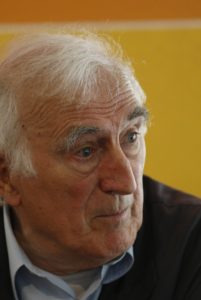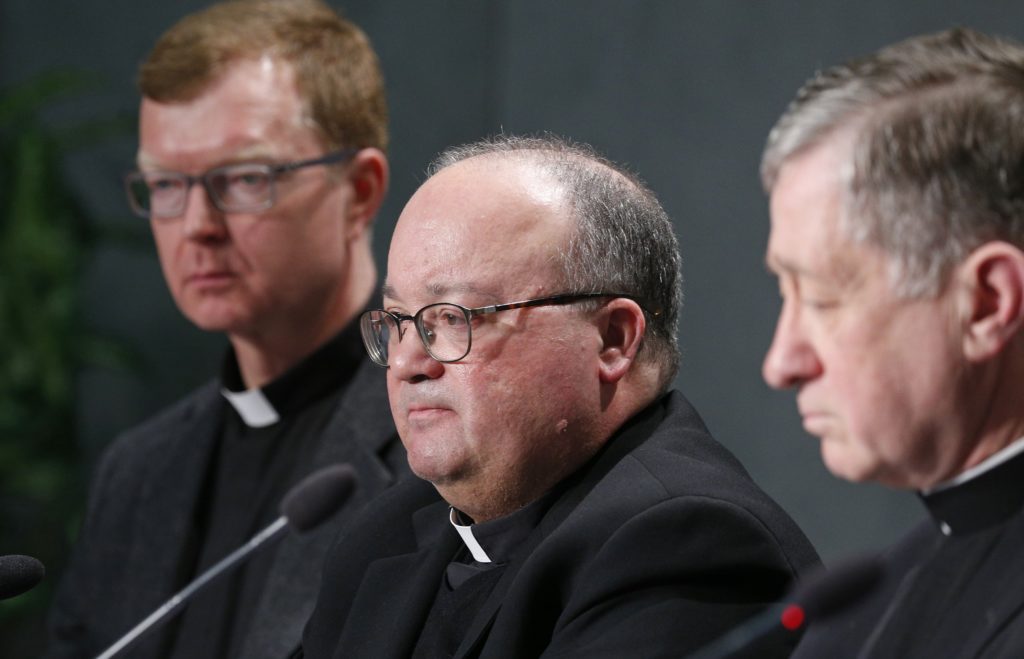ROME — Depending on who you ask, Pope Francis’ 2019 decree “Vos Estis Lux Mundi” (“You are the Light of the World”), coupled with updates to the policy announced March 25, is either a watershed in the Church’s fight against sexual abuse or a major disappointment — or, perhaps, both at the same time.
Originally issued in the wake of a summit of the heads of bishops’ conferences from around the world to discuss the abuse scandals, “Vos Estis” was designed to promote a culture of accountability, not just for the crime of sexual abuse but also for the cover-up. For the first time, it created a mechanism for investigating and sanctioning bishops and other superiors charged with failing to respond appropriately to claims of abuse against personnel under their authority.
The recent revisions announced by the Vatican include making lay leaders of Vatican-recognized groups subject to the requirements of “Vos Estis,” and also specifying that neither accusers nor witnesses in a “Vos Estis” investigation are required to maintain confidentiality. It also stipulates that abuse against “vulnerable adults,” in addition to minors, can trigger an investigation.
Archbishop Charles Scicluna of Malta, the Vatican’s former chief prosecutor of sex abuse crimes and widely recognized as one of the Church’s leading voices for reform, hailed the law and its recent updates as a cornerstone of the “very clear, limpid, and beautiful teaching of Pope Francis, which we must all treasure.”
Others, however, were less impressed.
Anne Barrett Doyle of BishopAccountability.org described the pope’s revisions to “Vos Estis” as a “big disappointment,” saying the policy needed “an extensive revamping, not a few tweaks.”
In substance, she cited four flaws with “Vos Estis”: 1) It remains a policy of bishops policing other bishops; 2) it does not require public disclosure or an investigation or its outcome; 3) it does not make bishops and superiors mandatory reporters beyond the requirements of civil law wherever they live; and 4) it limits lay roles in the investigatory process.
BishopAccountability.org claimed that only about 40 bishops had been investigated to date under the terms of “Vos Estis,” only half have received any sanction, and even in those cases the punishment has been quiet and mild. None have been laicized or deprived of their standing as a bishop, the group said.
No doubt, debate over “Vos Estis” will continue. In the meantime, it’s worth noting that whatever the limits of the policy, the pope’s revisions at least point to what many experts have long regarded as the next frontier in anti-abuse efforts: lay movements and associations.
A decade after the scandals first erupted in the United States, the Church today has fairly strong measures in place to deal with clergy accused of sexual abuse. Especially if that charge involves a minor, the cleric is almost automatically suspended from ministry and the accusation is made public. If an investigation finds merit to the charge, the cleric is likely to be laicized.
If an investigation also determines that the cleric’s superior dropped the ball, punishment may not be quite as swift and certain, but at a minimum that superior’s career path in the Church probably is fatally stalled.
When the offender in question is a layperson, however, especially if he or she isn’t on the Church’s direct payroll, the situation is far less clear.

Recently, two leaders of prominent lay movements in Catholicism have been found guilty of a longstanding pattern of abuse: Canadian layman Jean Vanier, founder of the L’Arche movement, and Peruvian layman Luis Fernando Figari, founder of the Sodality of Christian Life.
In Vanier’s case, a report commissioned by L’Arche concluded that he had engaged in manipulative sexual relationships with at least 25 women from 1952 to 2019; an ecclesiastical investigation of Figari, meanwhile, determined that he had engaged in a wide range of sexual abuse as well as abuses of power and conscience.
In those two cases, Church authorities had some tools at their disposal because both Vanier and Figari led international organizations that enjoyed official Vatican recognition. Many observers believe an even tougher challenge involves reports of abuse committed by individuals or organizations, which present themselves as Catholic, but are not recognized by officialdom and over whom authorities have little real control.
For example, consider the Catholic Culture and Environment Association located on the Italian island of Sicily, which, at its peak, numbered around 5,000 members. Its leader, a layman named Pietro Capuana who’s now in his early 80s, was considered by his followers to be the reincarnation of the Archangel Michael.
In 2017, Capuana was arrested on charges of sexually abusing girls between the ages of 11 and 16. Three other members of the group, all women, were charged as accomplices for allegedly selecting and grooming Capuana’s victims. Their long-delayed trial is currently underway in Sicily, with the defense case set to begin in the next hearing scheduled for April 18.
Although the group did not have any official ecclesiastical recognition, its founder was a popular Sicilian priest and “spiritual son” of the famed Capuchin mystic Padre Pio named Father Stefano Cavalli. The group routinely held its meetings in a Catholic parish, while its events were sometimes advertised in a diocesan publication.
Internal documents suggest that the Diocese of Acireale in Sicily was aware of charges of suspect behavior against the group as early as the 1970s, but officials have insisted the concerns were of a doctrinal and spiritual nature rather than sexual abuse.
In effect, the Sicilian group appears to have fallen into an ecclesiastical blind spot, publicly holding itself out as authentically Catholic but with no real oversight, either from the local diocese or from the Vatican.
For victims, of course, the fine points of Church law undoubtedly aren’t all that important — if the group appeared to have the Church’s blessing, and if no one in authority ever told them otherwise, they’ll naturally conclude the Church was somehow complicit.
How to make the Church’s new anti-abuse policies stick with such lay groups, which operate on the margins of Catholic life and which have a pattern of successfully evading efforts at control of any sort, seems destined to be yet another test of “Vos Estis” and the broader reform efforts of Francis.

